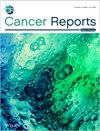Incidence Status and Factors Associated With Tyrosine Kinase Inhibitor-Induced Hypertension in Patients With Renal Cell Carcinoma
Abstract
Background
Although hypertension is a common side effect of tyrosine kinase inhibitor (TKI) treatment for renal cell carcinoma (RCC), there is limited evidence regarding its occurrence and related risk factors. Preliminary studies suggest that proton pump inhibitors (PPIs) may mitigate the risk of TKI-induced hypertension; however, their clinical effectiveness remains unclear.
Aims
In this study, we examined the prevalence of TKI-induced hypertension and the patterns of antihypertensive prescriptions among patients with RCC in Japan. Additionally, we investigated factors associated with TKI-induced hypertension to assess the potential impact of PPIs.
Methods and Results
Data from patients diagnosed with RCC who were prescribed TKIs between April 2008 and July 2021 were retrospectively gathered from a Japanese administrative database. TKI-induced hypertension was detected following the diagnosis of hypertension and subsequently the prescription of an antihypertensive agent during TKI therapy. The prescription details for antihypertensive agents were organized in a tabular format. Cox proportional hazards regression analysis was conducted to examine factors contributing to TKI-induced hypertension. Among the 225 patients analyzed, 36.4% experienced hypertension, and calcium channel blockers were the most prescribed antihypertensive agents. Pre-existing hypertension was identified as a risk factor for TKI-induced hypertension, while the concurrent use of PPIs did not show a tendency to reduce the risk of TKI-induced hypertension.
Conclusions
These findings indicate the importance of blood pressure management in patients with elevated baseline blood pressure.


 求助内容:
求助内容: 应助结果提醒方式:
应助结果提醒方式:


